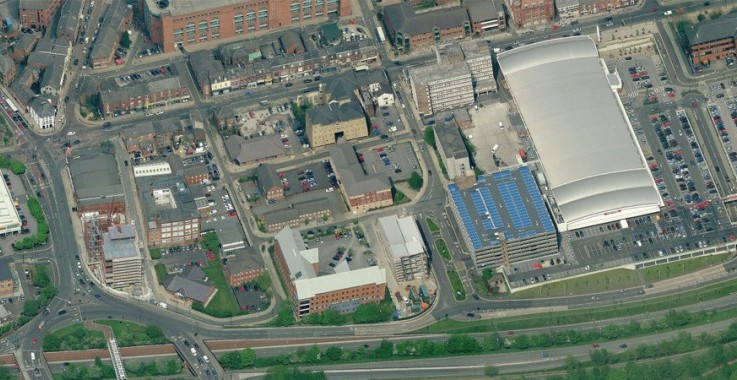Carbon Management - Lincoln Climate Change
Carbon & Emissions
Sustainability
Sustainability Consultant - Lincoln Climate Change Strategy
Delta-Simons was appointed to provide sustainability assistance to the City of Lincoln Council to form a strategy for the city-wide approach to policy formulation on climate change and energy security.
Purpose
Delta-Simons was appointed to provide sustainability assistance to the City of Lincoln Council to form a strategy for the city-wide approach to policy formulation on climate change and energy security.
The City of Lincoln Council aimed to make climate change a key priority and subsequently launched its own ‘Climate Change Strategy'. This targeted a minimum 10% reduction in carbon dioxide emissions by 2013 in council buildings, transport and services.
Outline / Scope of Works
Our sustainability team was asked to assess and recommend approaches to addressing energy and climate change in Lincoln City, both through planning policy and more widely for achieving zero carbon/carbon neutral developments for proposed developments in Lincoln. After considering various options that might be used to reduce emissions of greenhouse gases, while also providing a secure and renewable source of energy to limit environmental impact, our team recommended the following:
- Wind Turbines – zero operational emissions and a renewable source of electricity. UK wind farms currently generate enough energy for just 500,000 homes.
- Anaerobic Digestion – the breakdown of biodegradable material (in the absence of oxygen) by micro-organisms. Re-directing this type of waste to an anaerobic digestion facility can capture combustible gases and use them to provide a renewable electricity and heat.
- Combined Heat and Power (CHP) from biomass - the simultaneous generation of usable heat and power in one process. Biomass is living and recently dead biological material, e.g. trees, garden waste that can be used as fuel for CHP.
- Zero carbon housing - housing currently accounts for approximately 29% of the UK's carbon dioxide emissions. In order to reduce energy demand and CO2 emissions, and drive economies of scale for new technologies, the government proposed ambitious targets towards delivery of zero carbon housing by 2016 to be achieved by a 25% improvement in efficiency by 2010, a 44% improvement by 2013 and zero carbon housing by 2016.
Outcome / Client Benefits
The completion of the works led to over 30 key recommendations, providing information that could be used by City of Lincoln Council to adapt and mitigate the effects of global warming and climate change. Our recommendations were developed to benefit both the City of Lincoln Council the environment and renewable energy industry.



